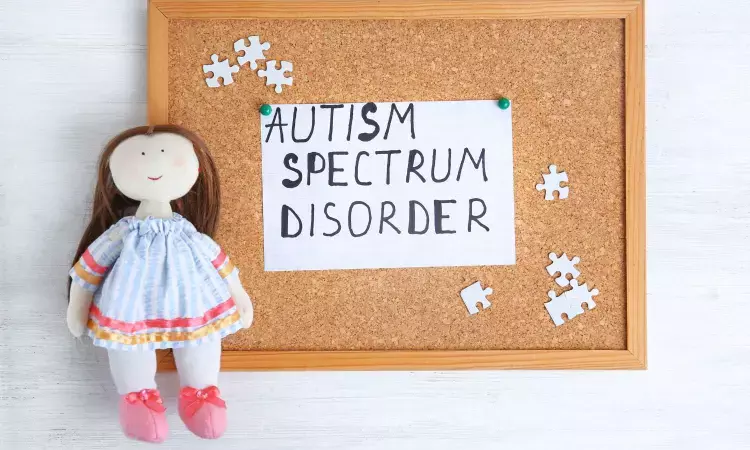- Home
- Medical news & Guidelines
- Anesthesiology
- Cardiology and CTVS
- Critical Care
- Dentistry
- Dermatology
- Diabetes and Endocrinology
- ENT
- Gastroenterology
- Medicine
- Nephrology
- Neurology
- Obstretics-Gynaecology
- Oncology
- Ophthalmology
- Orthopaedics
- Pediatrics-Neonatology
- Psychiatry
- Pulmonology
- Radiology
- Surgery
- Urology
- Laboratory Medicine
- Diet
- Nursing
- Paramedical
- Physiotherapy
- Health news
- Fact Check
- Bone Health Fact Check
- Brain Health Fact Check
- Cancer Related Fact Check
- Child Care Fact Check
- Dental and oral health fact check
- Diabetes and metabolic health fact check
- Diet and Nutrition Fact Check
- Eye and ENT Care Fact Check
- Fitness fact check
- Gut health fact check
- Heart health fact check
- Kidney health fact check
- Medical education fact check
- Men's health fact check
- Respiratory fact check
- Skin and hair care fact check
- Vaccine and Immunization fact check
- Women's health fact check
- AYUSH
- State News
- Andaman and Nicobar Islands
- Andhra Pradesh
- Arunachal Pradesh
- Assam
- Bihar
- Chandigarh
- Chattisgarh
- Dadra and Nagar Haveli
- Daman and Diu
- Delhi
- Goa
- Gujarat
- Haryana
- Himachal Pradesh
- Jammu & Kashmir
- Jharkhand
- Karnataka
- Kerala
- Ladakh
- Lakshadweep
- Madhya Pradesh
- Maharashtra
- Manipur
- Meghalaya
- Mizoram
- Nagaland
- Odisha
- Puducherry
- Punjab
- Rajasthan
- Sikkim
- Tamil Nadu
- Telangana
- Tripura
- Uttar Pradesh
- Uttrakhand
- West Bengal
- Medical Education
- Industry
Pancreatic replacement therapy may improve maladaptive behaviour in preschool children with autism

USA: Findings from a recent study published in JAMA Network Open have suggested improvement in maladaptive behaviours in preschool children with autism spectrum disorder (ASD), such as agitation or irritability with high-protease pancreatic replacement therapy.
“Children who have ASD often have several co-occurring maladaptive behaviours, such as irritability. We wanted to know whether these maladaptive behaviours can be addressed by an intervention with a low risk of side effects,” said Deborah A. Pearson, PhD, professor of psychiatry and behavioral sciences at McGovern Medical School at UTHealth Houston and lead author on this paper. Pearson is also the director of the Developmental Neuropsychology Clinic at UTHealth Houston.
Pearson said many children with ASD are selective about the foods they eat, often preferring carbohydrates like bread and pasta over protein. Some amino acids necessary for building neurotransmitters such as serotonin and dopamine, which are associated with behavioural and cognitive function, can only be obtained from food through protein digestion.
A total of 190 children, ages 3-6, participated in the study. In the first double-blind phase of the trial, 92 children were randomized to the active treatment arm and took 900 mg of a microencapsulated high-protease pancreatic porcine enzyme that was sprinkled on their food three times daily. In the other arm, 98 children had a placebo sprinkled on their food for 12 weeks. In the second open-label phase, all of the children received the active medication for 24 weeks.
According to the 12-week results, parents of children in the active treatment arm reported significant decreases in their child’s symptoms of irritability, hyperactivity/noncompliance, and inappropriate speech, relative to parents of children in the placebo arm. In the second 24-week phase, significant decreases were reported in all of the above behaviours, as well as in lethargy/social withdrawal. No serious adverse events were associated with the treatment.
“This study demonstrated that pancreatic enzymatic replacement- which is thought to enhance the supply of essential amino acids necessary for the synthesis of neurotransmitters-was associated with improved behavioural function in preschoolers with ASD, with minimal side effects,” Pearson said.
Reference:
Pearson DA, Hendren RL, Heil MF, McIntyre WR, Raines SR. Pancreatic Replacement Therapy for Maladaptive Behaviors in Preschool Children With Autism Spectrum Disorder. JAMA Netw Open. 2023;6(11):e2344136. doi:10.1001/jamanetworkopen.2023.44136.
Dr Kamal Kant Kohli-MBBS, DTCD- a chest specialist with more than 30 years of practice and a flair for writing clinical articles, Dr Kamal Kant Kohli joined Medical Dialogues as a Chief Editor of Medical News. Besides writing articles, as an editor, he proofreads and verifies all the medical content published on Medical Dialogues including those coming from journals, studies,medical conferences,guidelines etc. Email: drkohli@medicaldialogues.in. Contact no. 011-43720751


